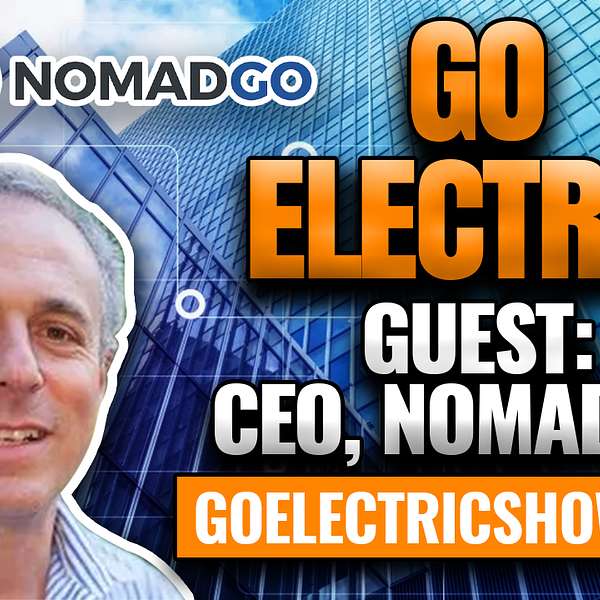
Go Electric!
Go Electric!
Go Electric Podcast with Guest: David Greschler, CEO of Nomad Go
Welcome to Go Electric where we cover some of the most interesting topics
around electrification and cleantech. Be sure to visit us at goelectricshow.com
Episode Summary
We had the pleasure of talking to David Greschler, co-founder and CEO of Nomad Go, a Seattle company helping businesses reduce their CO2 emissions and hit vital climate change goals. David started the company to revolutionize computer vision technology (the AI-powered interpretation of photographic imagery).
Images were being stored in the cloud, which proved highly expensive and challenging in terms of privacy, so David and his partner Jonah Friedl developed an edge computer system that worked primarily on a user’s own device, thus reducing cloud-based bandwidth requirements.
They realized that their innovations could be used to remotely control IoT devices to turn heating, cooling, and ventilation on and off in a building, depending on real-time analysis of the structure’s level of habitation.
Previously building HVAC systems would be run on regular schedules regardless of need, which was highly wasteful. By utilizing data on room occupancy, these systems could be run far more efficiently. Says David, “we end up reducing energy usage by at least 35% […] and correspondingly we’re reducing CO2 emissions.”
Nomad Go first offered their new product to ATS Building Integration, who had a pressing need for occupancy data. Their current CO2 sensing system was far from ideal and Nomad Go knew they had a better solution. Nomad Go next went on to work with McKinstry, a major mechanical engineering company. McKinstry had signed the Net Zero climate change pledge so were a perfect match for Nomad Go’s energy-saving innovations.
Nomad Go was motivated by the environmental good their product could deliver. “Your team has to be motivated and excited by what they do,” says David. “Really, this is about changing the world.”
While cars contribute 23-25% of global greenhouse gas emissions, David points out that buildings add a further 39% to the mix. 72% of the carbon footprint of new buildings is the power they consume, particularly in HVAC. Just as modern electric cars leverage data to become more efficient, data can be the driver of smarter, cleaner buildings.
“We should be advocating for the owners of buildings to get a tax credit to make their buildings more efficient,” David suggests. While a lot of money is spent on energy efficiency as a capital investment, more could be spent on operational costs. It’s also a remarkably common-sense plan. “It’s no different from when my parents used to ask me to turn off the lights when I left a room,” David jokes.
The COVID-19 pandemic has shifted people’s opinions on office hours, rending working schedules flexible and variable. Fixed HVAC scheduling is no longer fit for purpose.
David believes start-ups in cleantech should focus on evidencing new propositions: “if our number one objective, in addition to making money as an investor, is to truly impact the world, […] and be able to say at the end of the day ‘our investment led to a reduction of CO2 by this much’[…] you need to prove it.”
In Nomad Go’s system, the sensors gathering data do most of the processing, then send only what’s vital up to the cloud. Smart devices already exist with the capability to gather such data. Nomad Go is currently working with Microsoft and Sony on camera systems and edge processing.
David points to the plethora of potential hardware collaborators and concludes, “do not reinvent the wheel; find a way to get that wheel moving faster”.
Learn more about Nomad Go at NomadGo.ai.
This Episode of Go Electric is brought to you by, Charge Up USA, a one-stop-shop, turnkey marketplace for EV charging solutions and expert installation services. Charge Up